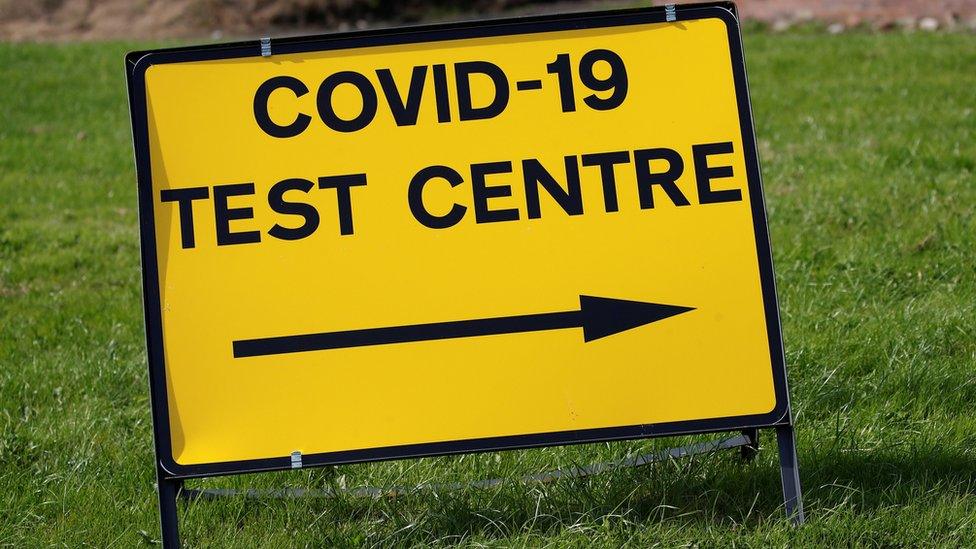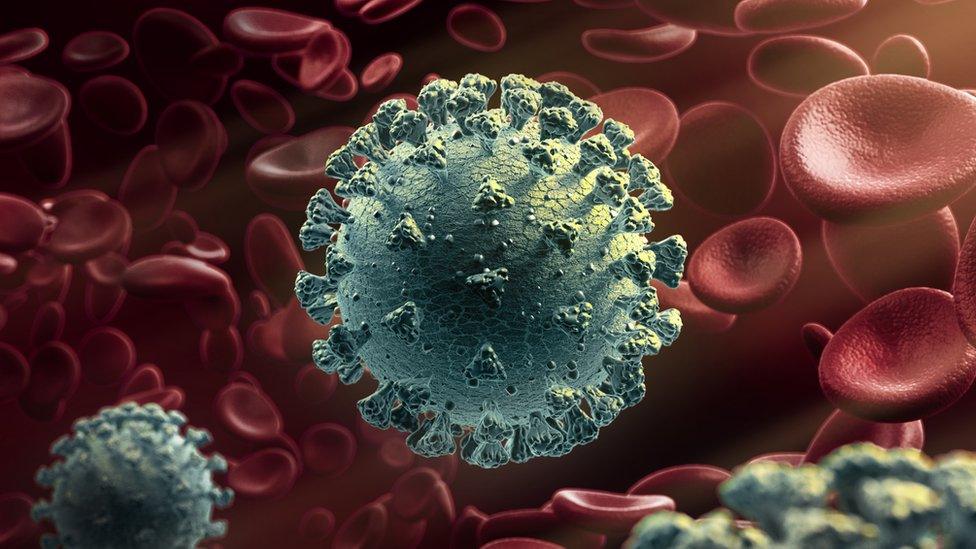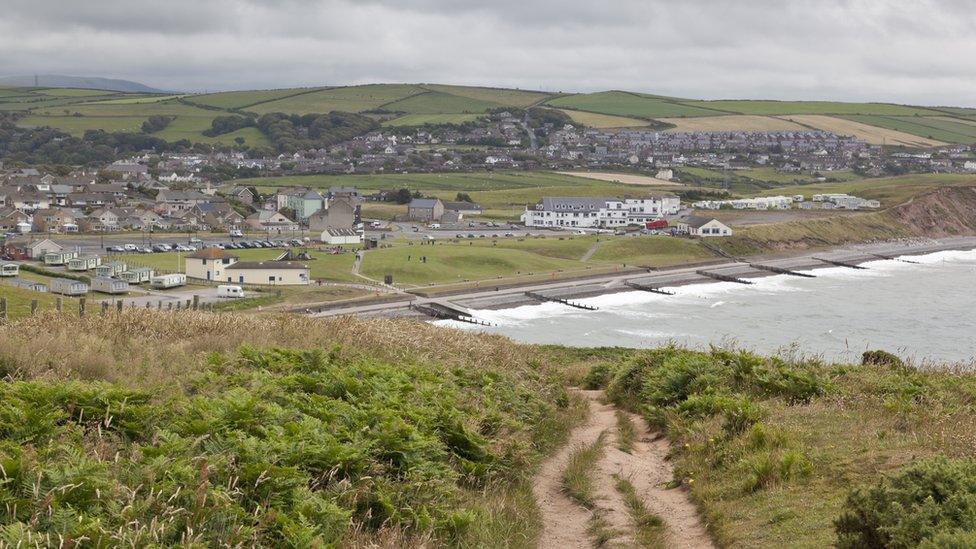Covid: New variant 'could be behind' Cumbria's rises
- Published

As of 20 December the infection rate for Cumbria had risen to 164 per 100,000 people
The new Covid-19 variant could be behind "recent sharp" rises in parts of Cumbria, a health boss says.
Data also shows the infection rate in the Eden council area is the highest in the county to date, with 345 cases per 100,000 of the population.
Colin Cox, Cumbria's director of public health, said the high number "points to something different going on".
The new variant has been identified in a small number of cases, the county council said.
Scientists believe while it is more infectious and spreads faster, there is no evidence to suggest it is more dangerous to health.
Cumbria as a whole is currently in tier two of the government's restrictions.
As of 20 December, the infection rate for the county had risen to 164 per 100,000 people.
Eden, which is England's most sparsely populated district, includes the market towns of Penrith, Brough, Appleby and Kirkby Stephen and has a population of about 53,000.
"It's pretty clear that while it is the south east of England that is having the worst of it right now, this new variant is already present in most parts of the country," Mr Cox said.
"Only a small number of cases have been positively identified in Cumbria, but what is happening in Eden, which throughout the pandemic has had low levels of infection and now has the highest we've seen, points to something different going on.
"In particular, the way we have seen some outbreaks develop in recent days has been very different to what we've seen before."
Mr Cox warned that if people did not follow the guidelines and health advice, there was a "significant risk" of a "large third wave" in January, bringing with it further lockdowns.

Follow BBC North East & Cumbria on Twitter, external, Facebook, external and Instagram, external. Send your story ideas to northeastandcumbria@bbc.co.uk, external.
- Published20 December 2020

- Published17 December 2020
